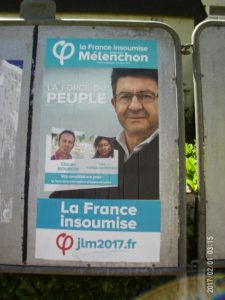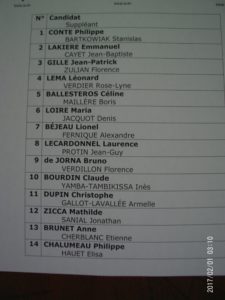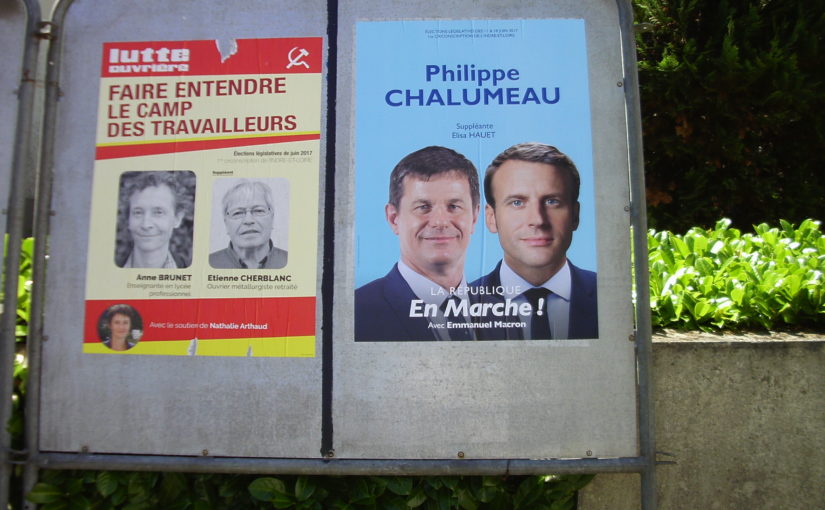For a student of politics, now is a fascinating time to be in France. Emmanuel Macron, young, handsome, and inexperienced, won the French presidency less than two months ago under the banner of a new party, En Marche! His most famous campaign slogan, La France doit être une chance pour tous (literally: France must be a chance for all), stood in stark contrast to the campaign rhetoric of his main competitor, Marine Le Pen, and her party, Le Front National. Macron won the presidential election with 65.9 percent of the vote. A victory this large would normally represent an electoral mandate. For an imperfect comparison, consider that Barack Obama won what was considered a decisive victory in the 2008 United States Presidential Election with 52.9% of the popular vote. Yet the unique nature of this year’s French election, which included a high abstention rate and many voters choosing Macron solely to keep Le Pen out of office, has led Macron to treat the first month of his presidency as a continuation of his campaign, with an eye on the French parliamentary elections taking place now.
As with the presidential elections, France conducts two rounds of voting for its parliamentary seats. The French went to the polls for the first round on Sunday to winnow the field from, in some districts (circonscriptions), ten or more candidates to two for the final round of voting which will take place next Sunday. I accompanied my host family to the polls today and discovered campaign advertisements along the way.

The decisive question for Macron at the start of the day was whether En Marche! could attain enough seats in the National Assembly to enact legislation in the coming year. Because En Marche! is a special creation which arose in response to the widespread discontent with the traditional parties in France, few citizens, perhaps not even Macron himself, know exactly what the party stands for and what a France led by En Marche! will look like. Moreover, in speaking with my host family, I’ve learned that the French are notoriously private in political matters. Campaign stickers and yard signs are considered tasteless. My roommate tried asking which candidate and party my host family preferred, but was promptly shut down: “C’est privée! “

The early returns this evening for En Marche! were strong. It will take all night to determine the final numbers, but En Marche! certainly performed well enough for many of its candidates to move on to the final round of voting next week. More importantly, it appears to be a real possibility that Macron will be able to form a parliamentary majority and enact legislation. What this legislation will entail remains a mystery, for the most part, but Macron has already proposed revisions to the French Code du Travail, or work laws, which has caused quite a stir in France. Part of Macron’s campaign message was to promise to loosen labor restrictions in order to allow for more labor mobility. This most likely means, of course, that it will also be easier for businesses to fire employees. Based on the initial French reaction, the country seems surprised that Macron is actually attempting to fulfill his campaign promise.

In less consequential news, I played a game of pick-up basketball with some French locals yesterday. The game involved a mix of English and French phrases. The locals did not know enough English to speak with us only in English, and my roommate and I were not capable of thinking quickly enough in French to speak only in French during the game. To continue my earlier lesson from the first blog post, that you can only claim to know a language when you can use it in a crisis, I would now add that you can only claim to know a language when you can speak it during sports. à bientôt!
